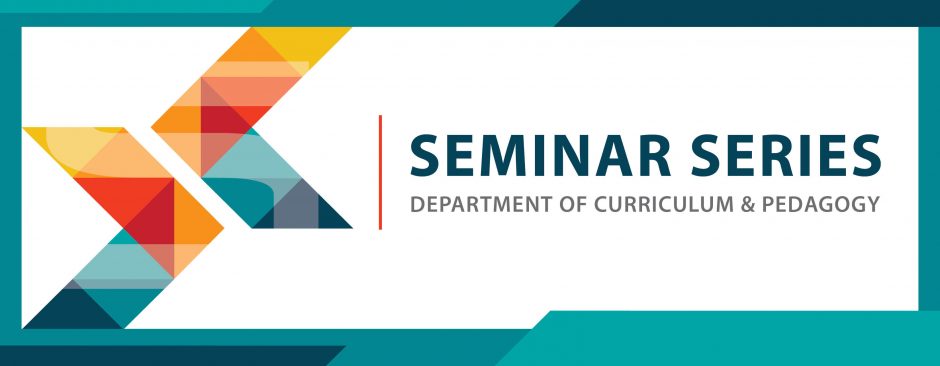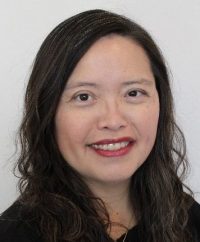
Dr. Yichien Cooper | Washington State University, Tri-Cities, USA
Chair, Asian Arts and Culture Interest Group, National Art Education Association
Friday, November 26, 2021 | 12:30 – 2:00 pm (PST) | via Zoom
Faculty Host: Dr. Sandrine Han
View the Seminar Poster
No Recording Permission
Abstract
This seminar invites participants to discuss how the practice of integrating arts curriculum in education has changed over time. The first focus is to critically exam how an utilitarian approach has been impacting the content and direction of arts integration pedagogy. The second focus is to propose a transformative approach to address cultural competence and social-emotional education in a post-COVID era. The goal is to mindfully practice arts integration to foster resilience and to empower learning experiences for all.
Arts integration pedagogy is known for its beneficial aspects in teaching and learning. However, Dr. Cooper argues that current practices are framed by an utilitarian approach, in which arts act as a means to teach or reinforce concepts from other academic subjects. Its purpose is to stress on learners’ cognitive development and academic performance. Such practice will further divide arts from other subjects and is an obstacle for inclusive and holistic education. Based on Dr. Cooper’s decade-long experience in teaching and researching integrating arts curriculum design and practices, this seminar invites participants to think how the definition and the practice of integrating arts curriculum have changed over time.
In the past two years, COVID-19 pandemic has prompted educators to rethink the purpose of education. The rise of racial tensions also reminds educators to incorporate social context, social identity, and cultural competences for social emotional learning.
As we move forward, adaptations are needed to be mindful of this challenging time. Therefore, the second focus of this seminar is to propose a transformative approach for arts integration with an introduction of Cultural Competency Standards created by the Washington State Professional Educator Standards Board (PESB). Dr. Cooper encourages participants to connect people (self and others; teachers and learners), time (historical and present), and space (home, community, and society at large) to co-create and co-shape the content and direction of curriculum. This presentation includes strategies and examples of employing relational pedagogy, arts-based, and narrative inquiry to address cultural competency with reflective transformative practices.

Short Bio
Dr. Yichien Cooper received her Ph. D. in Art Education from Florida State University with a Museum Studies Certificate. Her research interests focus on theories and practices of arts integration in relation to STEAM and design thinking, concept mapping, data visualization, social justice, arts-based and narrative inquiry, mixed identity, and cultural competence. She has given numerous keynotes and workshops internationally. Besides publishing in journals, she authored two Chinese books: Curriculum Design: On Thinking of Integrated Arts Curriculum (Hung-Yeh, 2016) and The Power of Integrated Curriculum: The Core of STEAM Education (Hunan Fine Art, 2017). She edited The 21st Century Arts and Culture Education (Hung-Yeh, 2018), co-edited with Solan Wong and Irene Hung on Challenges and Transformation: Conference E-Proceeding of 2018 InSEA Asia Reginal Conference & the 7th World Chinese Arts Education Symposium (2020), co-edited with Ming-Tai Cheng on New Trends in World Art Education Research (Shanghai Education Press, 2020), co-translated Patricia Leavy’s Method Meets Art with Wendy Hsieh (Hunan Fine Art, 2019), and a forthcoming co-edited English book with Kevin Hsieh and Lilly Lu, Teaching Chinese Arts and Culture (InSEA eBook). As an avid arts advocate, she serves as a reviewer and advisor for Taiwan’s cross-curriculum reform taskforce (2014-present) and the Chair of the Asian Arts and Culture Interests Group at National Art Education Association (2021-2023). She was the President of the World Chinese Arts Education Association (2017-2021) and the Chair of Data Visualization Working Group (2017-2021). She received a Proclamation of Appreciation for her contributions as an Art Commissioner (2014-2019) for City of Richland, WA. USA.